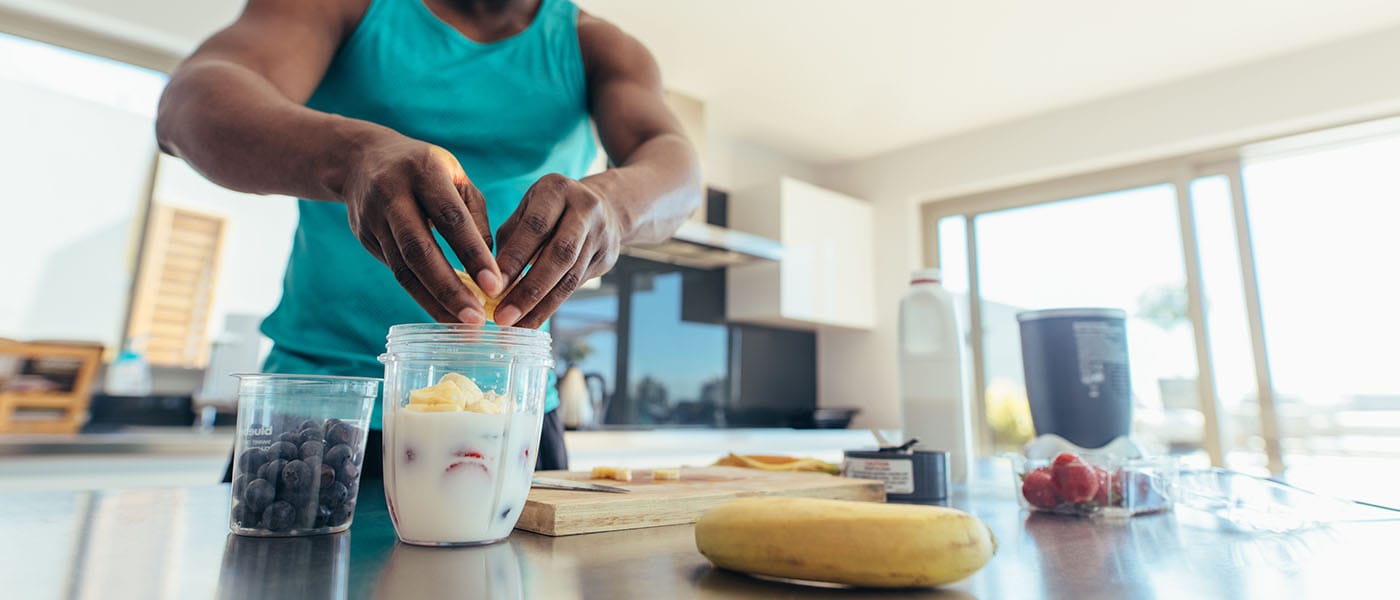
If you're undergoing sermorelin, you're already taking a powerful step toward revitalizing your energy, improving your sleep, building lean muscle, and optimizing your metabolism. Sermorelin stimulates your natural production of growth hormone (HGH), helping you achieve a youthful and balanced state of health. But even the most effective peptide therapies can only do so much on their own. What you eat plays a huge role in how well your body responds.
A diet rich in specific nutrients can enhance your body’s natural HGH release and make sermorelin even more effective. At Genesis Lifestyle Medicine, we believe in treating the body from the inside out. That’s why we encourage our patients to combine their peptide treatments with hormone-supportive foods and intentional lifestyle choices for truly transformative results. Here’s what you need to know about the best foods to eat during sermorelin therapy.
Raspberries
Melatonin-rich foods can optimize natural HGH production, and raspberries are one of the best for melatonin. Melatonin naturally enhances HGH secretion during deep sleep. In fact, studies show melatonin-rich foods can increase HGH release by up to 157%. Raspberries are also high in antioxidants and fiber, which support overall metabolic health.

For best results, eat raspberries in the morning with your breakfast or at night as a sleep-supportive snack. Consider adding them to oatmeal, yogurt, or a low-sugar protein smoothie to support both hormone balance and digestive health.
Salmon (raw or cooked)
Vitamin D deficiency is closely linked to lower levels of testosterone and growth hormone, both of which are essential for vitality. Salmon, especially raw or lightly cooked, is one of the richest natural sources of vitamin D. Just 100 grams of raw salmon can provide up to 271% of your daily requirement of vitamin D.
Alongside its vitamin D content, salmon offers high-quality protein and omega-3 fatty acids, which further support muscle growth, recovery, and cardiovascular health. Try including salmon sashimi, grilled salmon, or salmon salads in your weekly meal plan.
Pineapple
Pineapple is an effective food for supporting HGH levels. It’s an incredibly rich source of serotonin precursors, which help you relax and sleep deeply. Since HGH is secreted during deep sleep, supporting your sleep cycle directly impacts the effectiveness of sermorelin.
Enjoy a small serving of fresh pineapple in the evening or after dinner. Just be mindful of portion sizes, as pineapple is high in natural sugars and best consumed in moderation.
Coconut oil
Healthy fats are essential for hormone production, and coconut oil is particularly beneficial due to its medium-chain triglycerides (MCTs). When consumed pre-workout, coconut oil can stimulate HGH release for up to four hours, boost energy, and support fat metabolism.
To use it effectively, try adding 1 gram of coconut oil per kilogram of body weight to your pre-workout shake or smoothie. You can also sauté vegetables or protein in coconut oil as a hormone-supportive cooking method.

Soybeans
Soybeans are a great plant-based source of L-arginine, an amino acid known to increase growth hormone levels within just 30 minutes of consumption. L-arginine stimulates the pituitary gland and supports nitric oxide production, thus enhancing blood flow.
Include soybeans as a snack or side dish before a workout to support muscle pumps and hormonal balance. Edamame, tofu, and fermented soy products like tempeh are also excellent additions to a sermorelin-friendly diet.
Fava beans
Fava beans contain high levels of L-dopa, a compound that directly stimulates the pituitary gland to release more HGH. L-dopa also helps increase dopamine levels, which supports motivation, focus, and well-being, essential qualities for anyone on a wellness or hormone therapy journey.
These nutrient-dense legumes are ideal in soups, stews, or sautéed with garlic and olive oil. Try eating fava beans at lunch or dinner to support your body’s natural hormonal rhythm.
Lean beef steak
Lean cuts of beef provide essential amino acids and support the synthesis of L-orthinine, a compound that may raise growth hormone levels up to four times above baseline. In addition to protein, beef offers zinc, iron, and B vitamins, all of which are critical for hormone health.
Include grass-fed or organic beef in your diet a few times per week. Opt for cuts like sirloin, tenderloin, or flank steak, and pair with vegetables like spinach, broccoli, or asparagus.

Yogurt
Yogurt is an excellent source of glutamine, an amino acid that enhances HGH production. Just 2 grams of glutamine-rich food is enough to trigger a hormonal response. Yogurt also contains probiotics, which support gut health, and a healthy gut plays a key role in hormonal balance.
Choose plain, unsweetened Greek yogurt to avoid added sugars and maximize protein intake. Have it after dinner to support overnight recovery and growth hormone synthesis.
Additional lifestyle tips to optimize sermorelin:
- Prioritize 7 to 9 hours of deep, uninterrupted sleep nightly
- Avoid alcohol and high-sugar foods, especially in the evening
- Exercise regularly with a mix of resistance training and cardio
- Manage stress through meditation, breathwork, or quiet time
- Stay hydrated throughout the day with plenty of water
- Limit processed foods and inflammatory oils
- Eat meals rich in lean protein, healthy fats, and fiber
- Time your workouts or meals to align with sermorelin dosing when appropriate
- Take supplements (like vitamin D or magnesium) only under medical guidance
At Genesis Lifestyle Medicine, we take a comprehensive, inside-out approach to hormone therapy because optimal health requires more than just a prescription. By combining sermorelin therapy with the right nutrition, exercise, and recovery habits, you can truly amplify your results. Contact us to boost energy, gain muscle, and feel like yourself again.



